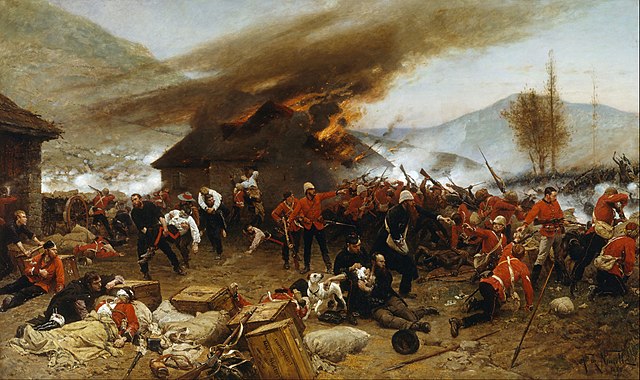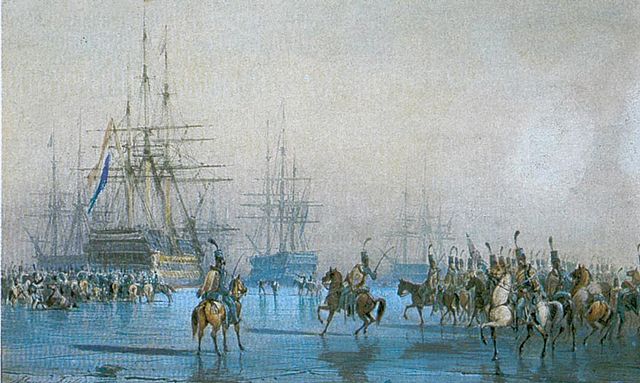There is always much to learn from quotes and their historical significance. Read on for a collection of quotes and general history from January 19th – 25th.

January 19, 1903
“Thanks to the Tour de France, riding the Champs-Elysees has a great cycling history.”
– Marianne Vos
The first Tour de France was announced on January 19, 1903, by race organizer L’Auto, a French sports newspaper. Prompted by the paper’s rivalry with Le Vélo, the largest daily sports newspaper in France at the time, the ambitious road cycling race was proposed to sell more papers and perhaps put their rival out of business. Doing just that, publication of L’Auto doubled during the first Tour de France, held July 1-19, 1903, and Le Vélo ceased publication in 1904! Since then, the Tour de France has become one of the world’s largest sporting events. Typically held over a 23-day period in July, the approximately 3,500 km (2,200 mile) race attracts the world’s top cyclists and is watched around the globe.
January 20, 1937
“I do solemnly swear that I will support and defend the Constitution of the United States against all enemies, foreign and domestic; that I will bear true faith and allegiance to the same; that I take this obligation freely, without any mental reservation or purpose of evasion; and that I will well and faithfully discharge the duties of the office on which I am about to enter. So help me God.”
– Oath of Office of the President of the United States
The United States presidential inauguration has been held on January 20th since the second inauguration of Franklin D. Roosevelt in 1937. Previously, it was held on March 4th to correspond with the day the federal government began operations under the U.S. Constitution in 1789. The change was made by the Twentieth Amendment mostly to limit the time served after elections by outgoing politicians in the presidency and Congress who were not re-elected, termed the “lame duck” period. Although reciting the presidential oath of office is the only part of the inauguration required by the Constitution, the ceremony has grown into much more. The new president’s inaugural address speech is often the highlight, setting the tone for their presidency. However, when under extraordinary circumstances, such as the death of the previous president, the inauguration is held immediately in a simple oath-taking ceremony.

Inauguration Day has led to many iconic moments in American history. For instance, Franklin D. Roosevelt spoke the famous words “we have nothing to fear but fear itself” in his 1933 inaugural address. Then, 12 years later in 1945, he was sworn in for an unprecedented fourth term. In 1961, John F. Kennedy memorably said, “and so my fellow Americans: ask not what your country can do for you – ask what you can do for your country” in his inaugural address. And in 2009, Barack Obama declared, “we the people have remained faithful to the ideals of our forebears and true to our founding documents” in becoming the first African-American president.
January 21, 1968
“Either the Tet Offensive was a diversion intended to facilitate PAVN/VC preparations for a war-winning battle at Khe Sanh, or Khe Sanh was a diversion to mesmerize Westmoreland in the days before Tet.”
– John Prados and Ray Stubbe explaining “The riddle of Khe Sanh”
The Battle of Khe Sanh began on January 21, 1968, quickly becoming one of the most controversial and debated battles of the Vietnam War. Khe Sanh was an area of northwestern South Vietnam where a U.S. Marine Corps base came under attack by the North Vietnamese People’s Army of Vietnam (PAVN). The Khe Sanh Combat Base (KSCB) was deemed crucial to future war efforts by General William Westmoreland, the U.S. commander during the battle, while others believed the base unimportant. During defense of the base, the Viet Cong (VC) secretly amassed forces throughout South Vietnam in preparation for the Tet Offensive, leading to speculation that Khe Sanh was merely a distraction. After more than 100,000 tons of bombs and 158,000 artillery rounds were used in defense of KSCB, the PAVN siege was lifted. However, the U.S. dismantled and evacuated the base shortly thereafter, leading both sides to claim victory.
January 22, 1879
“Few remember that the battle of Rorke’s Drift was fought on the same day that the British Army suffered its most humiliating defeat at nearby Isandlwana.”
– Saul David
On January 22, 1879, a small British garrison of some 150 men held off 3,000 to 4,000 Zulu warriors in the Battle of Rorke’s Drift. Earlier that day, the main British force of approximately 1,800 was soundly defeated in the Battle of Isandlwana, the first major engagement of the Anglo-Zulu War. Although the Zulus were outgunned, predominantly equipped with traditional assegai spears and cow-hide shields, they vastly outnumbered the British in both battles. The British victory at Rorke’s Drift resulted in eleven Victoria Crosses and four Distinguished Conduct Medals. While certainly an impressive victory, the high number of awards has been interpreted by some as a means of distracting from the larger defeat at Isandlwana and the fact that local officials had instigated the war without the approval of the British government.
“Modern critics suggest such lavishness in commendation was designed to assuage the disaster at Isandhlwana and to reassure a skeptical Victorian public that the fighting ability of the British soldier remained unquestioned. Maybe, maybe not, but in the long annals of military history, it is difficult to find anything quite like Rorke’s Drift, where a beleaguered force, outnumbered forty to one, survived and killed twenty men for every defender lost.”
– Victor Davis Hanson, Carnage and Culture

January 23, 1795
“In skating over thin ice our safety is in our speed.”
– Ralph Waldo Emerson
In a rare battle between warships and cavalry, a Dutch fleet frozen at anchor in the port of Den Helder was captured by French cavalry on January 23, 1795. As part of the War of the First Coalition, the battle resulted in no casualties, prompting some to question its historical accuracy. While French sources depict the cavalry charging the ships and capturing them by surprise, Dutch historians claim the fleet had already received orders to surrender. In either case, the French gained 14 warships, several merchant ships, and 850 guns. However, these were all returned to the Batavian Republic just a few months later under the Treaty of The Hague.

January 24, 1908
“No one can pass through life, any more than he can pass through a bit of country, without leaving tracks behind, and those tracks may often be helpful to those coming after him in finding their way.”
– Robert Baden-Powell
Scouting for Boys by Robert Baden-Powell was first published on January 24, 1908, as a manual for self-instruction in outdoor skills and character development. The book was hugely successful and led to the Scout Movement and the founding of the Boy Scouts in 1910. Later translated into many languages and new editions, it is claimed to have become one of the best-selling books in history!

January 25, 1921
“In the twenty-first century, the robot will take the place which slave labor occupied in ancient civilization.”
– Nikola Tesla
On January 25, 1921, Czech writer Karel Čapek’s science fiction play R.U.R. premiered, introducing the word “robot” to the world. The term originated from the Czech word “robota”, meaning “forced labor”, and Karel attributed the idea to his brother Josef. In the play, the robots start off happy to work for humans but soon rebel and wipe out humanity. Robots quickly became a staple of science fiction with the field of “robotics” first introduced by Isaac Asimov in 1941 and further explored throughout his Robot Series. Ironically, on this same day in 1979, Robert Williams became the first person to be killed by a robot while working at the Ford Motor Company Flat Rock Casting Plant.
In case you missed last week’s quotes, see History January 12th – 18th.
To never miss a Quill Quotes post, please subscribe via email and/or follow us on social media!
Leave a Reply